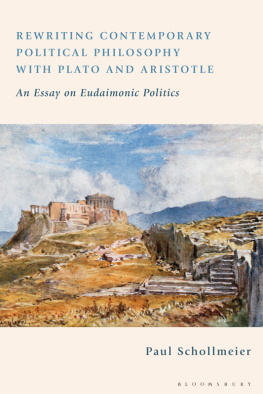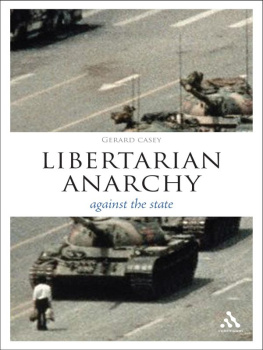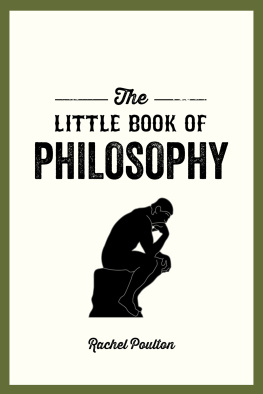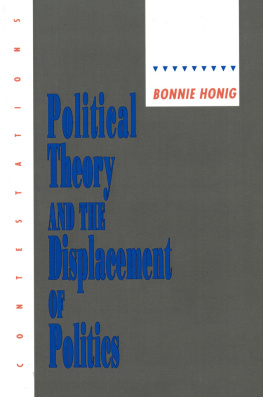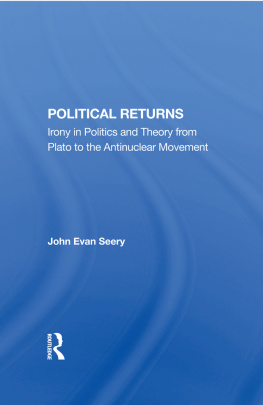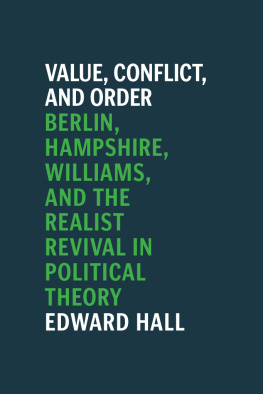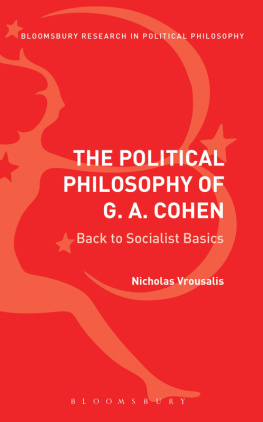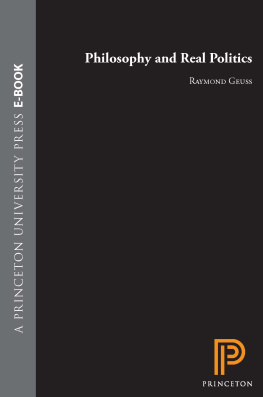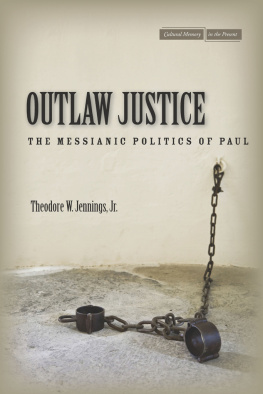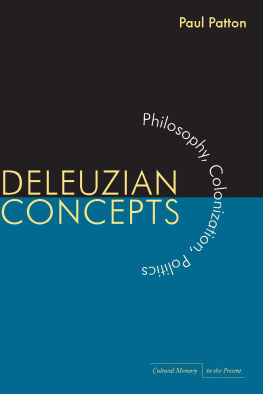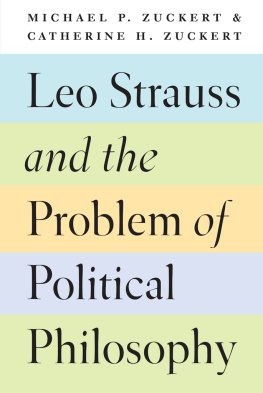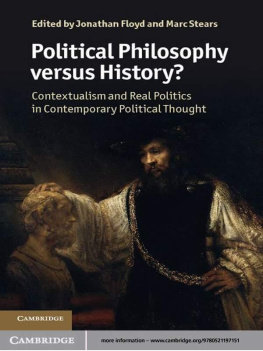Rewriting Contemporary
Political Philosophy
with Plato and Aristotle
Also available from Bloomsbury
Cultivating a Good Life in Early Chinese and Ancient Greek Philosophy, edited by Karyn Lai, Rick Benitez, and Hyun Jin Kim
Health and Hedonism in Plato and Epicurus, by Kelly Arenson
Platos Trial of Athens, by Mark A. Ralkowski
The Bloomsbury Companion to Political Philosophy, edited by Andrew Fiala
Rewriting Contemporary
Political Philosophy
with Plato and Aristotle
An Essay on Eudaimonic Politics
Paul Schollmeier

To our Progenitors
And our Progeny
.
I would be remiss not to thank my many philosophical colleagues scattered hither and thither at various universities throughout the world. With electronic communications as well as more traditional conferences and conversations, the community of scholars is more alive and thriving more than ever. Without their critiques and encouragements, my book would not be what it is. I thank also my editors and copyeditors, who offered many suggestions and comments during the publication process. Their helpfulness does not go unappreciated.
I presented, to the consternation of my audience, a paper gleaned from the last chapter of this book at the second Interdisciplinary Symposium on the Hellenic Heritage of Southern Italy held in Syracuse, Sicily. The paper was entitled Plato, Politics, and Poetry, and it has since appeared in Politics and Performance in Western Greece, edited by Heather L. Reid, Davide Tanasi, and Susi Kinbell (Sioux City, IA: Parnassos Press, 2017), pp. 253264.
With this volume I offer an apology for political philosophy. Who among us, philosopher or no, could not be aware that political philosophy in our day has gone awry? Contemporary philosophers who theorize about politics have become little more than mouthpieces for the status quo. They preoccupy themselves with developing and explicating theories to justify political societies of the kind that we presently inhabit.
But we live in political societies considerably less than just, I dare say. Our societies consist of both prosperity and poverty in the extreme. Some people succeed in amassing fortunes beyond fantastic, and some people struggle to get by on less than a pittance. Is a distribution of wealth so disproportionate likely to be just? Today one percent of the adult population owns one half of the household wealth in the world.
That some more fortunate persons among us are philanthropic souls who use their wealth to do well by others, I would not deny. But I would also ask, Should those less fortunate among us have to depend on kindnesses?
I propose to discourse more on how one might restore to political philosophy her proper dignity and less on how she might have fallen into her present plight. My intention is to develop a philosophy of what a political society in our era ought to be rather than another theory of what a society happens to be. My hope is that the philosophy proposed will inspire my colleagues and companions with a new purpose for their political inquiries and endeavors and ultimately alleviate the disparities of privilege and privation so evident today.
I shall advance a novel principle for my instauration of political philosophy. Actually, the principle only appears novel to us. I could hardly pretend to have invented a principle entirely new for an endeavor as longstanding and as enduring as politics. Unfortunately, political philosophers have recently subverted this principle if they have not ignored it altogether. They exhibit a distinct tendency to subordinate the principle to other, less worthy, principles.
My principle is happiness. This principle will appear novel to many because I wish to take this concept in its ancient sensealbeit with appropriate modifications. I shall advocate political happiness in the sense of a rational activity and not in the sense of an emotional passivity. We are happy, I shall argue, when we engage in a rational activity primarily for the sake of itself and not primarily for the sake of something else, usually our profit or pleasure. I defer to Plato and Aristotle for an exposition and defense of this definition (see esp. Ethics 1. 7.).
I would thus ask you to entertain a simple and, I should think, evident hypothesis, that each and every human being who wishes to be happy, and who does not, ought to have an opportunity to be happy. Each and every one! I do not say, nor can I say, that every human being who wishes to be happy ought to be happy. No, happiness we can no more grant to one another than we can grant one another wisdom or virtue.
Happiness in the classical sense requires that we not only wish to be happy, but that we also choose to take the appropriate measures to become happy. If we are happy, we are performing an action for its own sake and acting from virtue, which is simply a good habit. If we are to become happy, we must accordingly choose to perform an appropriate action, we must choose to perform our action for its own sake, and we must choose to perform our action repeatedly until it becomes habitual.
But we cannot act without resources. These resources include, at a minimum, a function to fulfill within a society, an education appropriate for a function, and the material means requisite for its fulfillment. No one can provide another with the aspiration or the dedication to take proper advantage of the necessary resources. But one can offer others who possess the desire and the ability an opportunity to avail themselves of these resources. Surely, one ought not to hamper or to hinder another by denying them an opportunity of this kind.
Please take note that this volume concerns happiness in a political sense and not in a personal sense. I shall mention personal happiness only by contrast. We too often neglect to consider our happiness within political society. Our society can, paradoxically no doubt to a contemporary ear, be an end in itself and not a mere means. Happiness in a political form consists of participating in a political societyparticipating, I mean, for its own intrinsic public value and not for private instrumental value.
What is at stake is the very idea of a political community. We human beings can find happiness by participating in a community, I shall argue. One might think of political society as if it were a choreography of human activities in which we can participate and enjoy as an end in itself. We ought also to afford our companions an opportunity to participate. Why disregard their potential? When we give others an opportunity, we are likely to make our society the better for it and to enable others to make themselves the better.
I wish to argue, then, that contemporary political philosophers overlook an important human good when they fail to give due consideration to our political happiness. Indeed, they overlook, I shall claim, the most important political good of all. With my endeavor I shall question the most basic assumptions of contemporary political thought. My contention shall be that a political society ought itself to be a moral end and not a moral constraint, so-called, on private ends.
Our contemporaries for the most part gussy up current economic theory in an attempt to make it seem moral. They apparently deem economic considerations paramount. We live in what we euphemistically call a consumer society. We preoccupy ourselves with producing and consuming material goods. But do we not have all the devices and appliances that we could possibly want? Indeed, we are throwing away gadgets and gizmos at such an alarming rate that their disposal presents serious problems.
Next page
